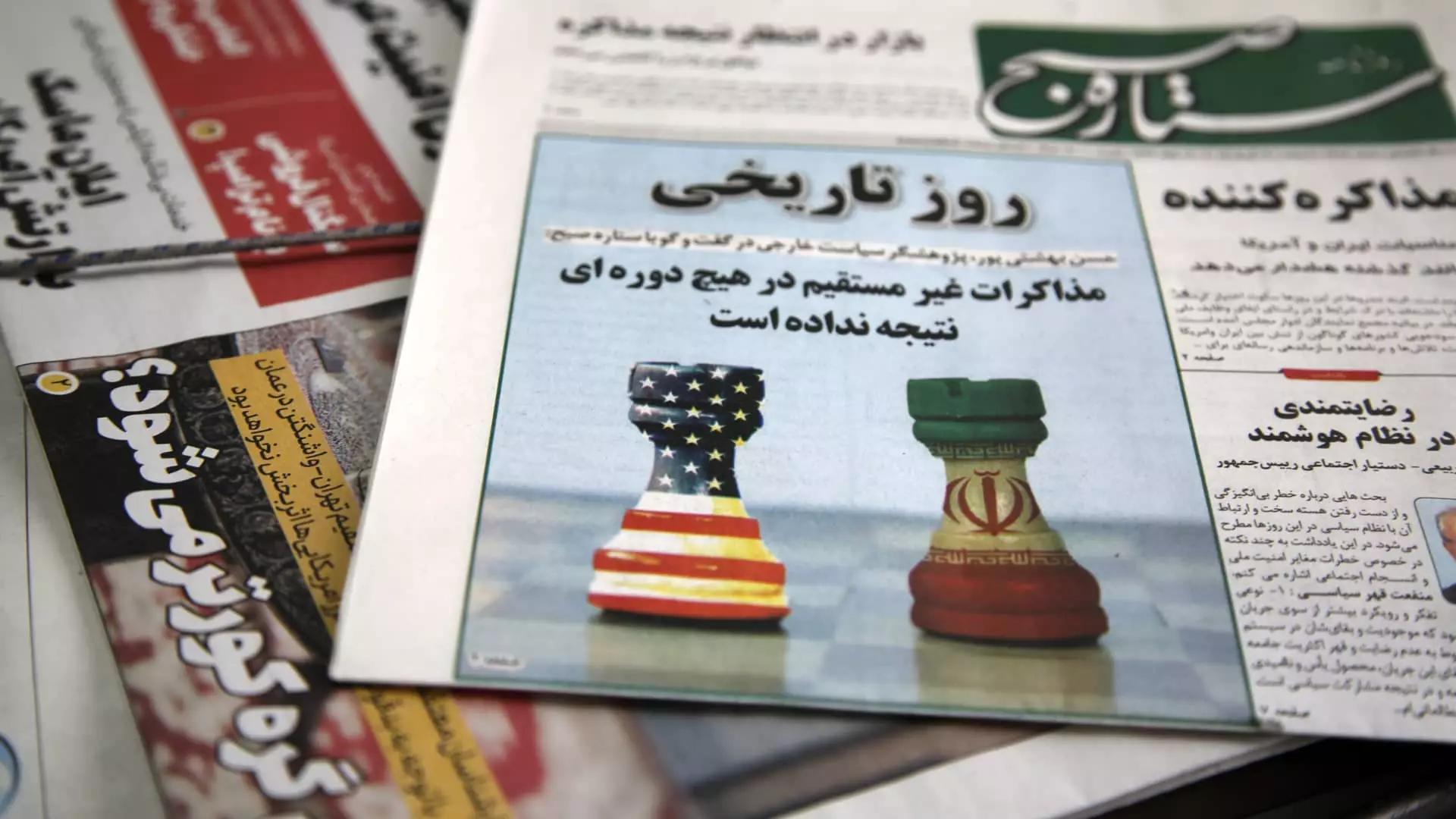The ongoing saga between Iran and the United States, centered around Tehran’s nuclear ambitions, has become an emblematic representation of international diplomatic failings. As a new round of nuclear talks unfolds in Rome, the pressing backdrop of President Donald Trump’s unwavering rhetoric and military threats looms ominously. This persistent discord raises fundamental concerns about the efficacy of diplomacy and the dire consequences of its neglect. The stakes in this high-stakes game of chess are not merely political; they are existential.
The latest negotiations have been described as “constructive,” yet the dialogue remains dashed with skepticism from both sides. Iranian Foreign Minister Abbas Araqchi and Trump’s envoy Steve Witkoff engage in indirect negotiations facilitated by Omani mediators, symbolizing a cautious approach borne from past experiences. Iran’s leadership, notably Supreme Leader Ayatollah Ali Khamenei, has sought to manage expectations, reflecting a broader desire to tread carefully amidst heightened tensions.
Historical Context: Lessons Ignored
To grasp the intricacies of the current situation, one must delve into the past. The 2015 nuclear agreement, which aimed to curb Iran’s nuclear program in exchange for the lifting of crippling sanctions, was a beacon of hope. However, in an act of self-sabotage, Trump unilaterally abandoned this pact in 2018. The re-imposition of sanctions not only exacerbated economic woes in Iran but also fueled distrust and hostility. The ensuing “maximum pressure” campaign represents a tragic miscalculation, showcasing the failure of diplomacy to adapt to the complexities of a multifaceted international landscape characterized by nationalism, aggression, and a quest for hegemony.
The irony is palpable: in aspiring to stop Iran from acquiring nuclear weapons, the very strategy employed has escalated tensions and stymied genuine dialogue. As Iran moves beyond the 2015 deal’s uranium enrichment limits, the question arises—does a blunted negotiating approach yield a better outcome or deepens the quagmire?
Negotiating from a Position of Weakness
In Rome, as Tehran sets its red lines, the atmosphere is fraught with mistrust and entrenched positions. It’s worth questioning whether Iran’s unyielding stance on uranium enrichment and defense capabilities is a sign of steadfast resolve or an admission of vulnerability. The demand for guarantees against future U.S. reneging, informed by past betrayals, highlights an acute awareness of the precariousness of international agreements in an era characterized by unpredictability.
Moreover, the U.S. continues to insist on halting Iran’s uranium enrichment, seemingly oblivious to the irony of one nation dictating terms under the threat of military action. This approach, rooted in a perceived notion of power, neglects the reality of mutual needs for security and respect among nations. The unwillingness to engage constructively in these negotiations reduces the likelihood of achieving sustainable peace.
The Role of External Players
Amidst these crushing negotiations, other nations like Russia have offered to mediate, implying that the resolution to the Iran-U.S. impasse may hinge on collaborative rather than confrontational approaches. This reality begs the question—can a nation facing an existential crisis ever truly negotiate in good faith without a robust international support structure? Thus far, external influences have often muddied the waters, providing a counterpoint of engagement, albeit still within the confines of geopolitical maneuvering that prioritize self-interest over collective security.
In light of the dire current state of negotiations, it is not only the tangible stakes that pose a cause for concern, but also the broader implications for international relations. The imperative for a measured and sincere diplomatic approach has never been more evident; any predisposition towards aggression only fuels the fire of conflict. Ideally, what is called for is a fundamental rethinking of strategies—moving beyond mere transactional interactions towards a more progressive framework grounded in mutual respect and understanding.
As the talks in Rome unfold, this juncture presents an opportunity: an invitation to embrace dialogue over discord and sanity over oppression. If not, we risk not only the singular fallout of a nuclear Iran but the broader unraveling of diplomatic norms that hold the foundations of global peace.


Leave a Reply